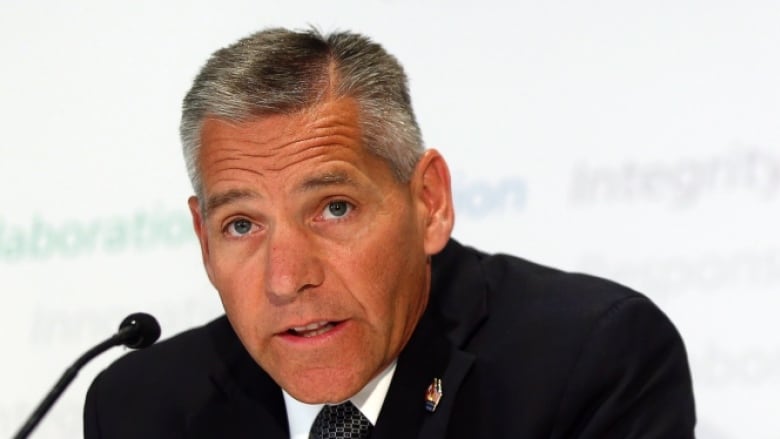TransCanada announces $13B US deal to acquire Columbia Pipeline Group
Columbia Pipeline owns more than 24,000 kilometres of gas pipelines in the U.S.

TransCanada has inked a $13-billion US deal that would help expand its already vast natural gas pipeline footprint.
The deal with Columbia Pipeline Group would create one of the largest regulated natural gas transmission businesses in North America, the Calgary-based energy giant said Thursday.
Columbia operates a 24,000-kilometre pipeline network that stretches from New York to the Gulf of Mexico.
- Cenovus CEO warns more layoffs coming despite 1,500 cuts last year
- Canadians revel in Alberta's downfall, or do they?
- NEB lacks public trust, poll suggests
The deal — which includes the assumption of $2.8 billion US in debt — represents a rare opportunity to snap up assets in the Marcellus and Utica shale gas regions of the northeastern U.S., said TransCanada CEO Russ Girling.
"The assets complement our existing North American footprint which together will create a 91,000-kilometre natural gas pipeline system connecting the most prolific supply basins to premium markets across the continent," Girling said in a statement.
"At the same time, we will be well positioned to transport North America's abundant natural gas supply to liquefied natural gas terminals for export to international markets."
Good rate of return
A business school head says it's a wise move for the company in an area with growing demand.

"If the transaction goes through TransCanada is acquiring a gas network in the northeast of the U.S. in the area referred to as the Marcellus region, where there has been a lot of shale gas production," said Joseph Doucet, dean of the Alberta School of Business in Edmonton.
"That production is growing, so it means that those pipes are going to be used and thus TransCanada is going to be able to get hopefully a very good return on those assets."
Deal good for shareholders
An oil and gas analyst says shareholders have reason to celebrate.
"Is it a good deal for TransCanada shareholders?" asks Rafi Tahmazian, a senior portfolio manager and director at Canoe Financial.
"It is because of the price they probably paid, relative to competition they would have had if their peers were involved."
Tahmazian says competing companies have struggled with low share prices relative to TransCanada, which has been resilient.
Political involvement?
Tahmazian says it may be time to take a bigger-picture look at transactions like this.
"I think our government needs to realize what these things can do to our resources, and are they going to get into the middle of it?" he asks.
"I think this becomes an issue that politicians have to address as well, because TransCanada is not going to do any favours. They are going to do what's best for TransCanada."
Challenges ahead
TransCanada has made headlines in recent years for its challenges in building new crude oil pipelines, like Keystone XL and Energy East.
U.S. President Barack Obama nixed Keystone XL in November following a seven-year regulatory saga.
National Energy Board hearings have not yet begun into the Alberta-to-Atlantic Energy East proposal, which has been facing mounting opposition from environmental groups and some Quebec politicians.
With files from The Canadian Press